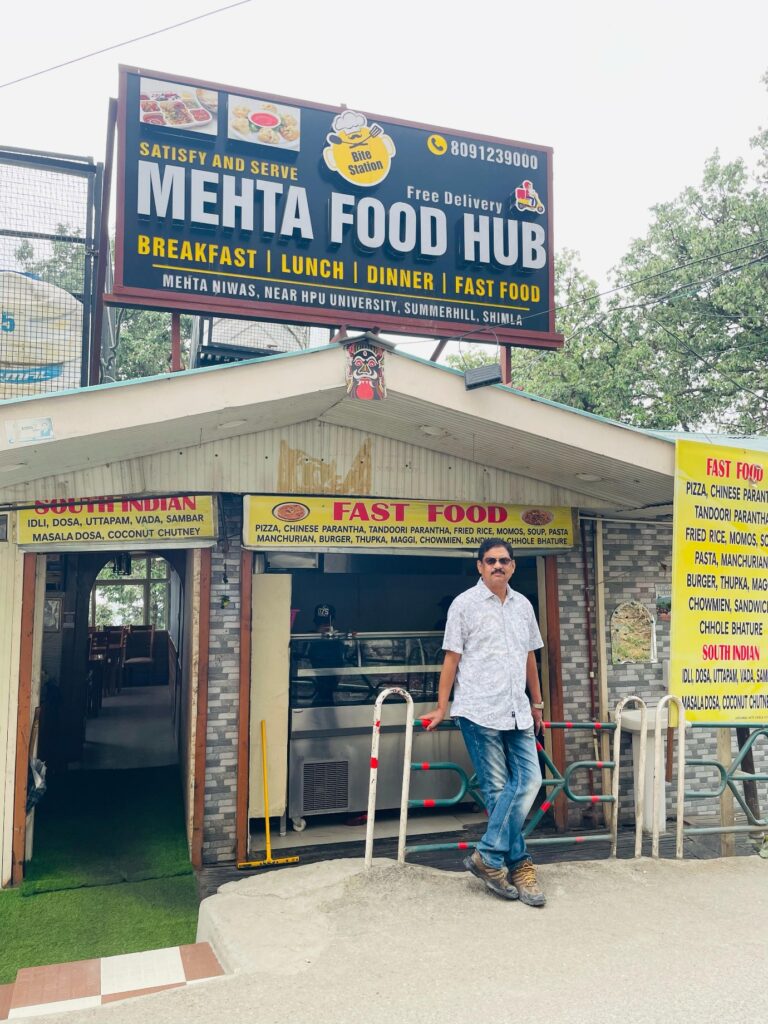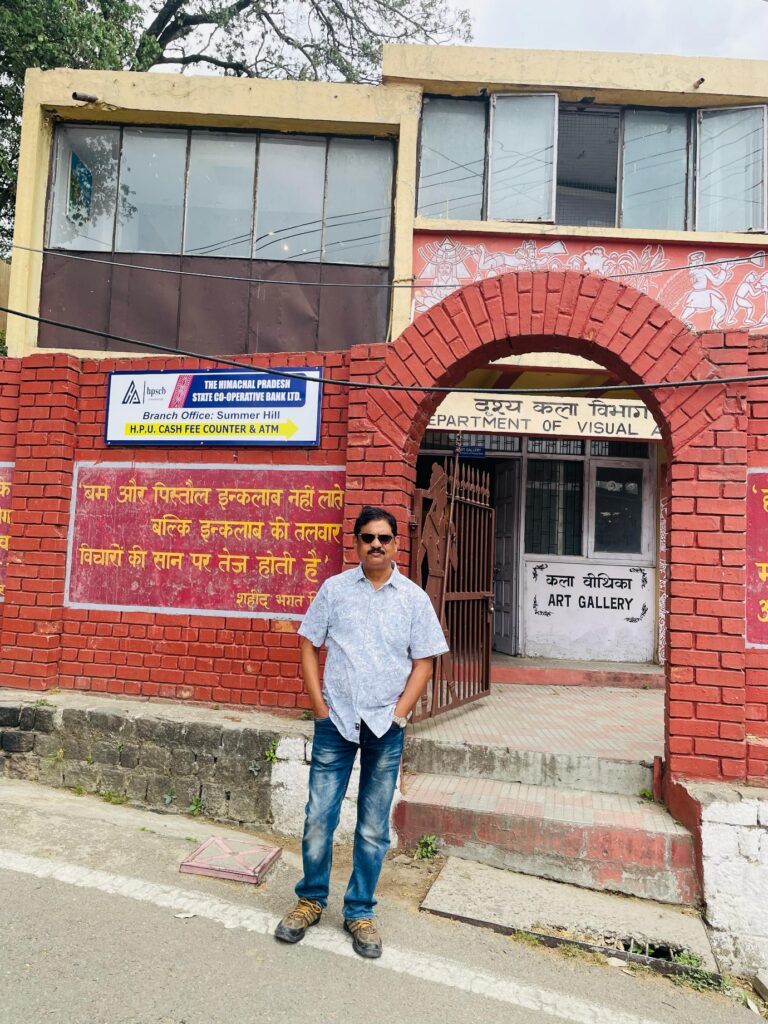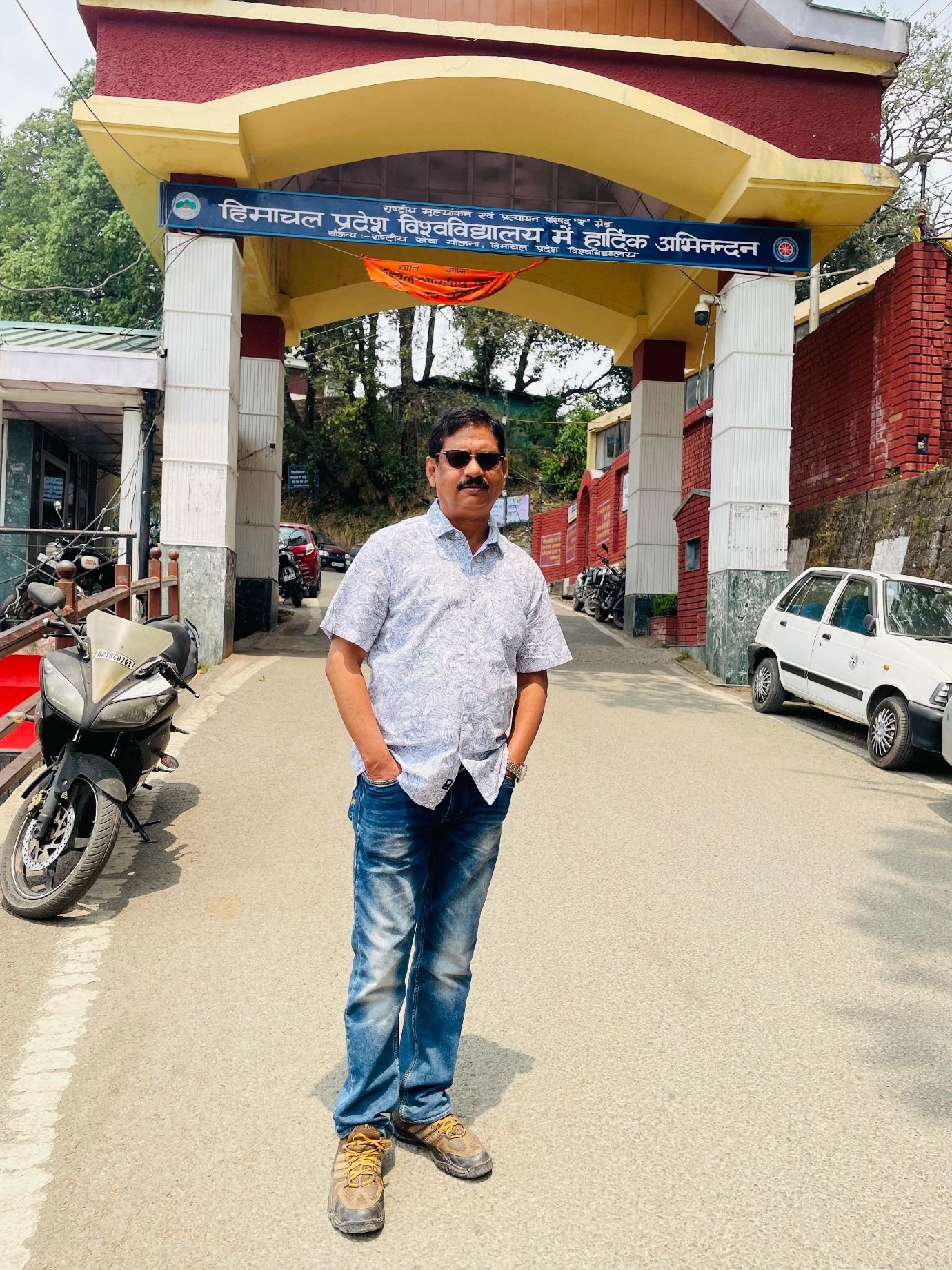As I stepped out of my Economics class at Himachal Pradesh University, Shimla, the crisp air of the early post-graduation days still felt new. I was walking absentmindedly, lost in thought, when I suddenly heard someone calling out, “Biswajeet! Biswajeet!” I turned around. It was Sadhna Rao—her face lit up with a wild, joyful smile that only old friends can bring out. She was just emerging from the English Department.
“Tu yahaan?” she asked impulsively, her eyes wide with surprise. Before I could respond, she pointed toward a small, rutted road nearby. “Look there,” she said.
And there she was—Rashmi Sehgal, standing with that unmistakable ear-to-ear grin. “Tu bhi PG kar raha hai? Kis department mein?” she asked, her voice bubbling with excitement. She told me she was doing her post-graduation in History—if memory serves me right. The three of us stood there, talking in an ecstatic daze—as if long-lost friends had just stumbled upon each other in a city of strangers.
And then came John (Manoj Jain), followed by Bhola (Anil Sharma). With that, the Solan Gang was complete. It was the beginning of a golden chapter—those early days of post-graduation at Himachal University. I had graduated from Bilaspur in Himachal, while the others were from Solan. Reuniting with them in an unfamiliar city made me feel like the luckiest man on campus.

We soon slipped into a rhythm of joy—breakfast together at Calm Café (though it was anything but calm); lunches often shared in the guest room of the Girls’ Hostel; long chats over tea at the University Cafeteria; and evening strolls along the Mall Road or down the winding University lane that connected to Chaura Maidan, where our hostel, Ava Lodge, stood.
Then, forty-five years passed. I returned to the university to retrace those laughter-filled paths, to reconnect with echoes of our banter and the foolish jokes we once played on each other.
But the visit felt like a gentle heartbreak. Calm Café had vanished—replaced by a row of commercial shops. The little chauraha near the café, once a hub of noisy friendship, was now unrecognizable.
Those were days of lightheartedness and depth, of friendships that needed no promises, of silly songs and sudden crushes, of silent support when someone’s heart broke and roaring laughter when someone tripped over their own shoes.
Years passed. Decades melted away
I tried to find my old Economics Department, but the wooden structure with its tin shade roof was gone. In its place stood a soulless, multi-storey concrete building. I asked a student where the department was. “Third floor, sir,” she replied politely, probably thinking I was a visiting professor.
The old cafeteria was no more—it had been taken over by the Department of Visual Arts. But as I looked up, the windows on the first floor were just as I remembered them. The same frame, the same angle of sunlight—they unlocked a memory.

Once, I had entered that cafeteria and found my hostel mate sitting near the window, elbow propped on the table, whispering with a friend. When he saw me, he waved me over.
“Ek gaana suna,” he said with mischief in his eyes. “Kaunsa?” I asked. He grinned. “Zubaan pe dard bhari daastan chali aaye,” he replied—the melancholy voice of Mukesh echoing in my head already.
I sang a few lines, lost in the emotion of the moment—only to be interrupted by his friend banging the table. “Chup ho ja!” he barked.
The whole table burst into laughter. My friend, now holding his stomach, said between guffaws, “Iska aaj breakup ho gaya hai.” I stood there, baffled and embarrassed. I apologized to the heartbroken boy and left, mumbling under my breath, “Dost bahut harami hota hai.”
I wandered further, hoping for some thread of the past to cling to. I looked down at the same rutted road leading to the Girls’ Hostel—the one we had taken a hundred times, sometimes for silly reasons, sometimes for no reason at all.
But this time, I didn’t take that road. I stood still.
The new façade of the University—the sterile buildings, the missing landmarks—left me disheartened.
I had come in search of old memories, but the past seemed to have been swept away. And yet, even in that sense of loss, something lingered—a stubborn warmth, a quiet joy of once having lived those moments. Some memories, no matter how buried under concrete and time, refuse to fade.
